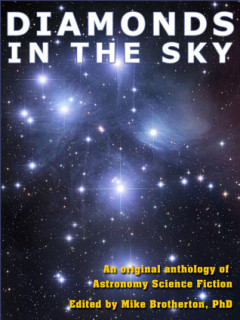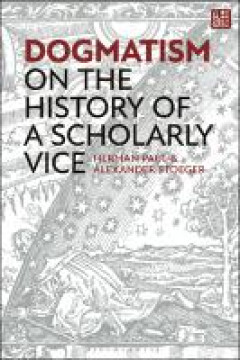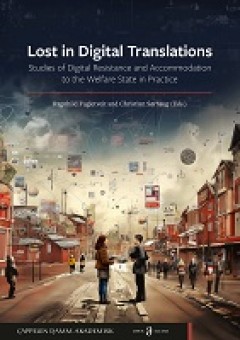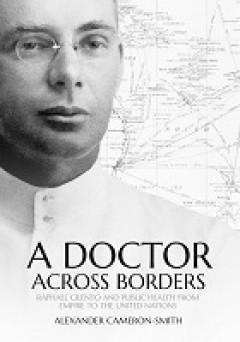Ditapis dengan
E-book Eyewitness Travel: London
- Edisi
- -
- ISBN/ISSN
- 9780241277300
- Deskripsi Fisik
- 442 halaman, ilus.
- Judul Seri
- -
- No. Panggil
- 910 SHA e
- Edisi
- -
- ISBN/ISSN
- 9780241277300
- Deskripsi Fisik
- 442 halaman, ilus.
- Judul Seri
- -
- No. Panggil
- 910 SHA e

E-Book Diamonds in the Sky
The purpose of the anthology is to provide stories with ample and accurate astronomy spanning a range of topics covered in introductory courses. Instructors in high school and college may find these stories useful, as some students may learn concepts more easily through story than from lecture. Fans of science fiction with good science should also enjoy these stories. Contributions include both…
- Edisi
- -
- ISBN/ISSN
- -
- Deskripsi Fisik
- 159 halaman, ilus.
- Judul Seri
- -
- No. Panggil
- 791.43 MIK d

E-Book Dogmatism: On the History of a Scholarly Vice
Why does the history of dogmatism deserve our attention? This open access book analyses uses of the term, following dogmatism from Victorian Britain to Cold War America, examining why it came to be regarded as a vice, and how understandings of its meaning have evolved. Whilst the field of scientific thought is committed to continuous innovation, ideas about dogmatism – with their roots in anc…
- Edisi
- -
- ISBN/ISSN
- 9781350399570
- Deskripsi Fisik
- 115 halaman
- Judul Seri
- -
- No. Panggil
- 901 PAU d

E-Book Lost in Digital Translations: Studies of Digital Resistance and Accomm…
Innovations create new possibilities for the welfare state. Digital technologies, however, can create a range of surprising and unintended effects. Lost in Digital Translations: Studies of Digital Resistance and Accommodation to the Welfare State in Practice is an exploration of what happens when digital technologies intersect with welfare state practices. This book seeks to develop a creative …
- Edisi
- -
- ISBN/ISSN
- 9788202831233
- Deskripsi Fisik
- 205 halaman
- Judul Seri
- -
- No. Panggil
- 362 BER l
E-book Perfume and Literature : The Persistence of the Ephemerd
Between the nineteenth and twentieth centuries, contemporary culture and philosophy in particular encouraged an energetic reappraisal of the sensible life as an integral part of corporeity and intermediation between humans and ‘their’ world. ‘Sensibility’ evokes an interface relationship with the world, while the ‘sensorium,’ a distinct term/concept that is related to the former, ex…
- Edisi
- -
- ISBN/ISSN
- 9788899644291
- Deskripsi Fisik
- 432 hlm
- Judul Seri
- -
- No. Panggil
- 668.5 ALE p

E-Book A Doctor Across Borders: Raphael Cilento and Public Health from Empire…
In his day, Raphael Cilento was one of the most prominent and controversial figures in Australian medicine. As a senior medical officer in the Commonwealth and Queensland governments, he was an active participant in public health reform during the inter-war years and is best known for his vocal engagement with public discourse on the relationship between hygiene, race and Australian nationhood.…
- Edisi
- -
- ISBN/ISSN
- 9781760462642
- Deskripsi Fisik
- 326 halaman
- Judul Seri
- -
- No. Panggil
- 610.734 CAM a
E-book Sumatran Mamals : Photographs from Camera Traps in the Bukit Tigapuluh…
A huge variety of terrestrial and aquatic species are included in this class, with over 5000 species recorded worldwide. All mammals share a basic feature: the presence of mammary glands that produce milk to feed their offspring. In contrast to birds, fish and reptiles, mammals have hair or fur. This may sometimes be barely visible or only present in newborn animals. Mammals also have a region …
- Edisi
- -
- ISBN/ISSN
- -
- Deskripsi Fisik
- 61 hlm
- Judul Seri
- -
- No. Panggil
- 599.5981 MAS s
E-book Emerging Threats of Synthetic Biology and Biotechnology : Addressing S…
Synthetic biology raises the possibility that pathogenic bioweapons could be designed, developed, and deployed in new ways that diverge from the disease-causing characteristics of naturally occurring pathogens (NAS 2018). Traditionally, only known pathogens found naturally in the environment, such as B. anthracis and Y. pestis, were developed as biological weapons because o…
- Edisi
- -
- ISBN/ISSN
- 9789402420869
- Deskripsi Fisik
- 233 hlm
- Judul Seri
- -
- No. Panggil
- 610.28 TRU e
E-book The Economics of Water : Rules and Institutions
Water is not only the beginning of all things, as the old Greeks had alreadyrealized, but without water, no life on earth is possible, and clean water is also aprecondition for any form of sustainable development. There is enough availablefreshwater on earth (about 91,000 km3) to supply every individual on earth (about7.5 billion in 2020) approx. 12,000l, more than enough to live decently. Howe…
- Edisi
- -
- ISBN/ISSN
- 9783030484859
- Deskripsi Fisik
- 312 hlm
- Judul Seri
- -
- No. Panggil
- 363.61 MER t
E-book Cultures in Conflict : Religion, History and Gender in Northern Europe…
For the debates about the ultramontanization of Catholicism in the course of the nineteenth century the contrast of an early example of pilgrimages and a later case during the heyday of ultramontanism can be revealing. Though sim-ilar in social and gender aspects there are differences on the level of organiza-tion, inherent ultramontanism and transnational traits. The phenom…
- Edisi
- -
- ISBN/ISSN
- 9783631847312
- Deskripsi Fisik
- 222 hlm
- Judul Seri
- -
- No. Panggil
- 274 BLA c
 Karya Umum
Karya Umum  Filsafat
Filsafat  Agama
Agama  Ilmu-ilmu Sosial
Ilmu-ilmu Sosial  Bahasa
Bahasa  Ilmu-ilmu Murni
Ilmu-ilmu Murni  Ilmu-ilmu Terapan
Ilmu-ilmu Terapan  Kesenian, Hiburan, dan Olahraga
Kesenian, Hiburan, dan Olahraga  Kesusastraan
Kesusastraan  Geografi dan Sejarah
Geografi dan Sejarah